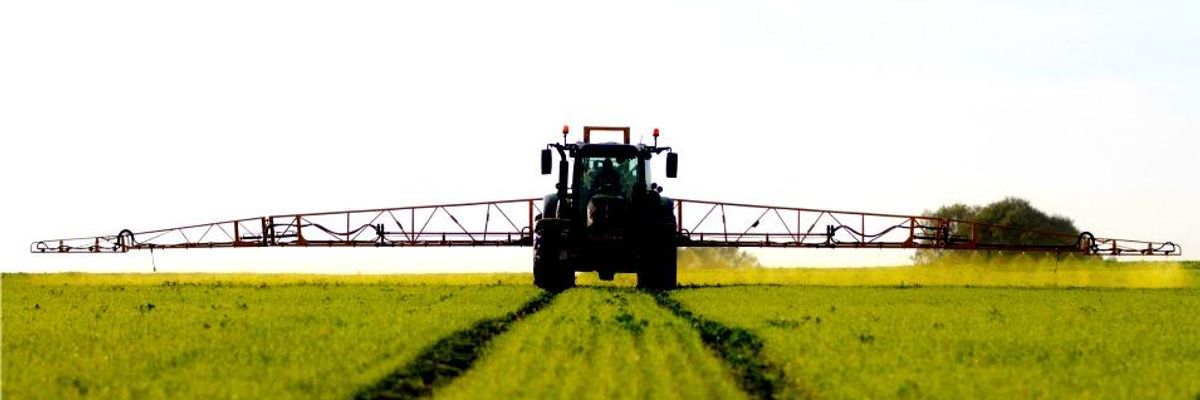The World Health Organization revealed on Tuesday that dichloro phenoxy acetic, a key ingredient of a widely used herbicide produced by Dow, is "possibly carcinogenic" to humans—a classification that public health and environmental advocates say is just the tip of the iceberg when it comes to the chemical's overall dangers.
The International Agency for Research on Cancer--a Lyon, France-based wing of the WHO--published the findings Tuesday in The Lancet Oncology and also disclosed them in a public statement (pdf).
The agency said there is "strong evidence that 2,4-D induces oxidative stress that can operate in humans and moderate evidence that 2,4-D causes immunosuppression, based on in-vivo and in-vitro studies."
The classification of "possibly carcinogenic" puts 2,4-D two levels above "probably not carcinogenic" but one below "probably carcinogenic."
This development did not come as a shock to public health and environmental advocates.
"We have known for decades that 2,4-D is harmful to the environment and human health, especially for the farmers and farm workers applying these chemicals to crops," said Mary Ellen Kustin, senior policy analyst for the Environmental Working Group, in a press statement.
However, advocacy groups say that the agency's findings come at a particularly critical time.
"Now that farmers are planting 2,4-D-tolerant GMO crops, this herbicide is slated to explode in use much the way glyphosate did with the first generation of GMO crops," said Kustin. "And we know from experience--and basic biology--that weeds will soon grow resistant to these herbicides, making GMO crop growers only more dependent on the next chemical fix."
Marcia Ishii-Eiteman, senior scientist at Pesticide Action Network, said that this dependency underscores the importance of immediate action: "We must heed the warning: we cannot continue down the path of dousing our fields with ever more toxic chemicals as a temporary solution to today's epidemic of herbicide-resistant weeds--a problem greatly exacerbated in recent years by dependence on glyphosate, now classified as a probable carcinogen."
Troublingly, 2,4-D is just one key ingredient in Dow's Enlist Duo herbicide, which the Environmental Protection Agency approved in April for use in 15 states. The other key ingredient is glyphosate, which the WHO said in March is a "probable carcinogen" for humans.
What's unknown, and perhaps even more alarming, is that "when the EPA approved Enlist Duo for use on GMO crops, the agency did not consider the effects the two harmful defoliants may have on human health when mixed," EWG warned Tuesday.
